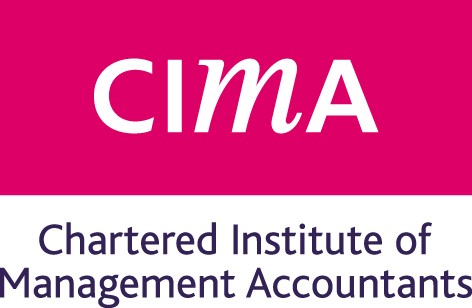Contents
Understanding the spring budget 2024
Business and entrepreneurial focus
Addressing the cost-of-living crisis
Navigating the property market
Enhancing childcare and education
This budget is controversial for many reasons but mainly because the tax cuts are unfunded and just before a General election. I think this budget is less about changing the tax system and more about creating a trap for the next government that will struggle to get out of.
From a budget responsibility point of view the tax cuts in this one are even bigger than the Autumn statement 2023 and while putting more money in people’s pockets can be good for growth, at the time of writing the UK is at 97% debt to GDP which is close to the levels experienced by countries like Greece and Spain during their sovereign debt crisis in 2009.
This underlying debt in our economy can be a disaster if interest payments increase any further and they already are at £110 billion a year which is three quarters of what we spend on the NHS.
Need Some More Advice?
GET IN TOUCHKey Takeaways
The Spring Budget 2024 is all about growth for the UK economy, 2% inflation by Q2 2024 and 0.7% GDP growth by 2028-29, with big tax changes to encourage work and public spending plans including the abolition of the FHL scheme.
National Insurance Contributions (NICs) have been cut, so workers and self employed will save £900 and £1,242 respectively, while broader tax changes include a residence based regime for non-domiciled individuals from April 2025.
Key personal tax changes include reduction in higher rate capital gains tax on residential properties from 28% to 24%, a ‘British ISA’ with an increased allowance and investment bonds to encourage savings, and mechanisms to support SMEs like the Growth Guarantee Scheme.
Understanding the Spring Budget 2024: Key Takeaways

National Insurance Adjustments
The UK tax system includes National Insurance as part of it. In the Spring Budget 2024 there will be over £10 billion a year cut in National Insurance Contributions for workers across the country. With this big cut, an average worker will save around £900 a year so their net income will increase and it will be easier for them to pay income tax.
Self employed will also benefit from these changes. They will see cuts in both Class 2 and Class 4 NICs which will mean an estimated annual saving of around £1,242 mainly due to the abolition of Class 2 and the reduction in the main rate for Class 4 NICs from 9% to 6%. These National Insurance changes are not just to put more money in workers pockets but also to drive broader economic growth.
Tax System Reforms
The Spring Budget 2024 is changing how non-UK domiciled individuals will be taxed, moving away from the current model to a new residence based tax regime from April 6th 2025. This will have a big impact on those not domiciled in the UK.
Under this new system transitional provisions are being put in place which include the ability for these individuals to rebase their capital assets as of April 5th 2019. In the tax year 2025-26 they will be able to pay tax on half of their overseas income. After 4 years of residence in the UK under this new regime they will have to comply with UK tax on foreign income and gains. Newcomers will get relief for the first 4 years.
To make the tax system fairer and simpler the budget also goes beyond individual taxpayers – abolishing rules for non-UK domiciles and property tax changes which will bring in over £600 million a year by 2028-29. All these changes are to equalise the playing field across different taxpayer groups and to make it easier to collect tax by simplifying existing rules.
Personal Finance Adjustments

There is another new savings vehicle called “British ISA” in this budget. This account allows you to invest in UK assets and get tax free returns and increase your annual ISA limit by £5,000 to £25,000. The idea behind this British ISA is clear – it’s not just for savers but also to channel more money into UK companies to boost economic growth in the UK.
Capital Gains Tax Modifications
There is a change to Capital Gains Tax in the Spring Budget 2024. From April 6th 2024 the higher rate of CGT on sales of non-PRR residential property will reduce from 28% to 24%. Homeowners will get some relief. Note that gains within the basic rate band for residential property will still be taxed at 18%.
These are part of wider changes in property tax which will change investor behaviour and the housing market. Property owners with rental properties or second homes will get big benefits from these tax changes. So these will encourage more investment in property assets.
ISA and Savings Enhancements
The British ISA is a game changer for the UK economy – tax free investment in UK assets. This ISA increases your annual tax free investment limit by £5,000 to £25,000. It also allows you to invest up to £5,000 in UK shares without tax as part of its plan to channel more money into UK companies.
Business and Entrepreneurial Focus

The 2024 Spring Budget has introduced a series of initiatives aimed at strengthening support for small and medium-sized enterprises (SMEs) as well as entrepreneurs. These initiatives are designed to improve their ability to obtain financial backing through the expansion of loan programs, with the intention of fostering business development and invigorating the economy. An important modification is that what was previously known as the Covid recovery loan platform will now continue under a new title, the Growth Guarantee Scheme, for an extra two years in order to meet smaller businesses’ financial requirements.
Following on from previous successes achieved by past versions of Recovery Loan Scheme, which successfully distributed £4.3 billion in finance among UK companies, it’s expected that this rebranded and continued Growth Guarantee Scheme will bolster around 11,000 businesses between mid-2024 and early-2026. In conjunction with these efforts, there’s also substantial funding being injected into scientific progress. Namely a sum totalling £360 million earmarked for research and development within key industrial segments plus an additional investment amounting to £45 million focused specifically on medical studies related to serious illnesses.
Growth Guarantee Scheme Extension
The rebranding of the Recovery Loan Scheme as the Growth Guarantee Scheme is a key part of the 2024 Spring Budget to support small businesses to get funding for growth and economic resilience.
Importantly the conditions of the Growth Guarantee Scheme remain the same. This means lenders and businesses can have continuous access to funding and grow. This is key to the overall objectives of the 2024 Spring Budget and SMEs will benefit most.
VAT Registration Threshold Increase
The 2024 Spring Budget has another change with the VAT registration threshold going up. From April 1, 2024 businesses will see the threshold increase from £85,000 to £90,000. If their taxable turnover falls below the new deregistration threshold of £88,000 they can now opt out of VAT.
These changes to the registration and deregistration thresholds for VAT are for multiple reasons.
To reduce the administrative burden on smaller businesses.
To help smaller B2C businesses keep profits by not having a tax burden
Addressing the Cost of Living Crisis

The 2024 Spring Budget has several measures to address the cost of living crisis. One of which is to keep fuel duty rates at current levels for another 12 months including a 5p temporary cut and the cancellation of the 2024-25 increase. This is a continuation of the status quo that has kept fuel duty rates frozen since 2011.
This will deliver tax cuts of around £3.1 billion this year, which is around £50 per car driver. This will be some help to drivers with the cost of living.
Alongside the fuel duty freeze the extension of the alcohol duty freeze to February 2025 is part of the cost of living crisis measures. This will help consumers and businesses, particularly pubs, breweries and distilleries, to ease the financial pressure of the cost of living.
Navigating the Property Market
In the 2024 Spring Budget there are changes to policies affecting the property market. From June 1st 2024 Multiple dwellings relief (MDR) in the Stamp Duty Land Tax will be removed. If contracts were exchanged before March 6th 2024 MDR can still be applied.
The government is reforming the tax system for property transactions which will raise over £600 million a year by 2028-29. This includes introducing new exemptions from Stamp Duty Land Tax for social housing providers buying properties with public funding from March 6th this year. These changes will change how investments and ownership work in the social housing market.
Raising £300 million for the government, the reforms include removing Furnished Holiday Lettings tax reliefs. As changes take effect on tourist rental properties tax, it will change investment strategies and patterns of ownership in that sector.
Enhancing Childcare and Education
The 2024 Spring Budget has big changes in the childcare and education sectors, including changes to child benefits. The changes include increasing the High Income Child Benefit Charge threshold to £60,000 with a progressive charge between £60,000 and £80,000. This will mean different financial benefits for families depending on their income. Gains from Child Benefit changes will be £1,109 to £1,664.
From April 6th 2024 when new claims are made for Child Benefit they will be backdated to the threshold of £60k if earnings are above that. These are part of a wider plan to improve educational infrastructure and early years care.
What’s not in the budget?
Private and Public Sector Productivity
The biggest problem facing the UK economy hasn’t been addressed in this budget and by that I mean the productivity crisis which means we have the highest levels of long term absence and sickness since the 90’s.
While people in work get to keep more of what they earn and the government claim 300,000 will go back to work because of the announcements, there is no support for training and apprenticeships, the biggest problem being the gap between minimum wage rates and what trainees are paid while they are learning to be productive which will disincentivise many to start training.
Making the Tax System Fairer
The tax system isn’t getting fairer, many of the cuts are for people in work but nothing for VAT and local authority council taxes which is a tax on everyone regardless of their ability to pay.
HMRC don’t collect tax debts so up to £40 billion is outstanding and many businesses are still not declaring cash sales and paying tax on them.
Summary
The 2024 Spring Budget is a plan to get the economy moving with big changes in tax and public spending. By reducing National Insurance, introducing the new “British ISA” and expanding the Growth Guarantee Scheme and increasing the VAT threshold this budget is a roadmap for a stronger Britain.
Along with measures to reduce living costs through the household support fund and changing the real estate market rules these are big changes in the UK fiscal landscape. As we get used to these we can see the 2024 Spring Budget is not just about reinforcing but reviving the British economy which will have benefits for individuals, businesses and society as a whole.
Frequently Asked Questions
What are the major changes in the Spring Budget 2024?
The big changes in the 2024 Spring Budget are a reduction in National Insurance, a new “British ISA”, the Growth Guarantee Scheme, increased VAT threshold and measures to tackle the cost of living crisis.
How will the National Insurance adjustments benefit workers?
National Insurance changes will mean the average worker will save £900 a year and the self employed will save around £1,242 a year.
These will mean more money in workers’ pockets each year.
What changes have been made to the Capital Gains Tax?
From April 6th 2024 the Capital Gains Rate will rise. Tax rate on sales of non-qualifying residential properties will be reduced from 28% to 24%.
What is the new “British ISA”?
The new “British ISA” allows investments in UK assets tax free and increases the overall ISA limit to £25,000 a year.
Act now and get the benefit today.
How is the Spring Budget 2024 addressing the cost of living crisis?
In the cost of living crisis the 2024 Spring Budget is keeping fuel duty rates the same and extending the duty suspension on alcohol until February 2025 to help ease the burden on household budgets.





















